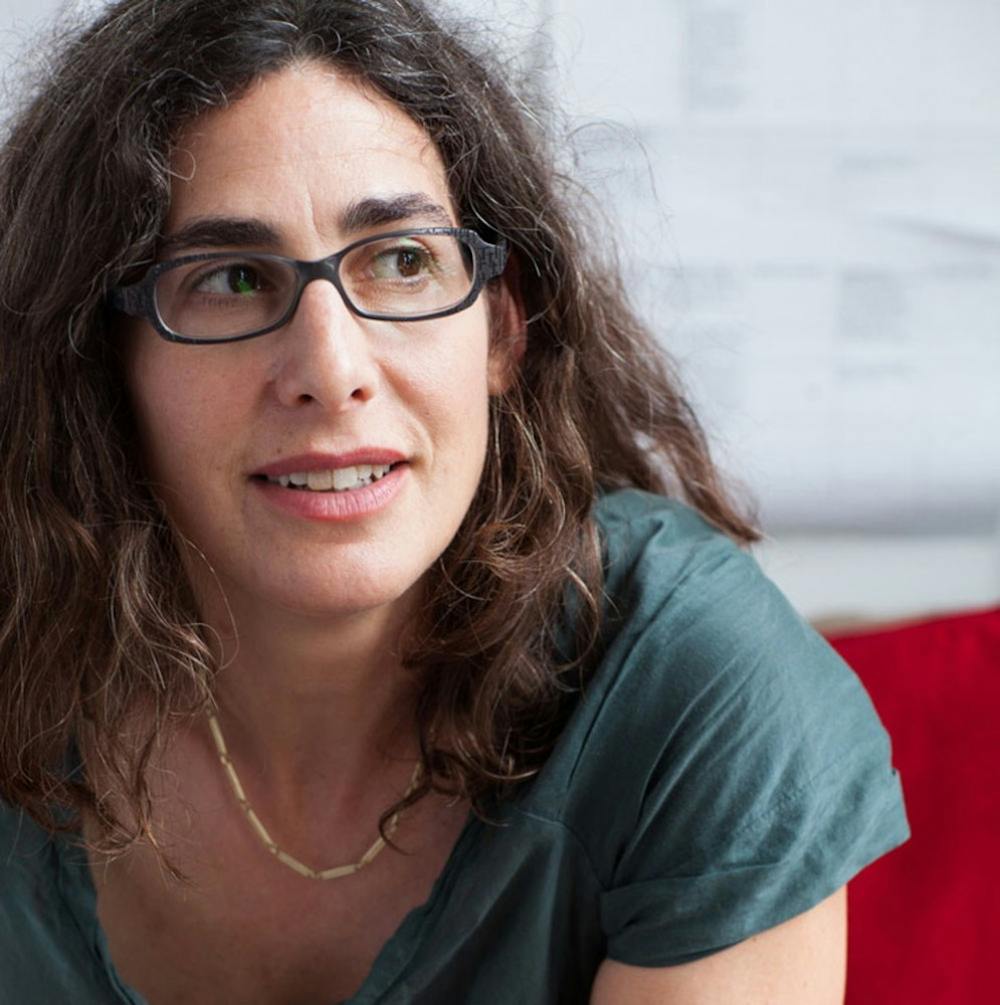Sarah Koenig made the first season of her now award-winning podcast in her basement. She had to pause the recording each time one of her kids flushed the toilet upstairs.
She didn’t realize just how popular the podcast would be until there were 300,000 downloads in just a few days. The “Serial”podcast – two seasons with a total of 23 episodes – now has more than 200 million downloads.
Koenig, a journalist, radio personality and producer of “Serial,” spoke in the Center for the Arts on Monday night to discuss the structure, content and work that goes into making her podcasts.
“Serial”is a non-fiction podcast about the investigation of the 1999 homicide of Hae Min Lee, an 18-year-old high school senior from Maryland, and the murder conviction of her boyfriend Adnan Syed, who remains in jail today. Koenig co-created “Serial” with Julie Snyderin 2014 as a spin-off of “This American Life.”
Koenig said she was captivated by Lee’s murder and had many questions about it. She knew when she started to report about it that other people would be interested as well.
Koenig said she thinks her podcast may have gained attention because of a similar “trigger” people get when they watch TV shows like “Breaking Bad”or “House of Cards.”
“They were enjoying [‘Serial’]as much as they were enjoying entertainment,” Koenig said. “But it wasn’t entertainment – it was journalism. It was real and people were not used to responding to journalism in that way.”
Koenig said the tone of her podcast is casual and conversational, which creates the misconception that her reporting is “easy breezy.” She said her work is emotionally tiring and that everything she says could have a consequence. She said she feels a lot of pressure and developed anxiety.
Koenig said because “Serial” is about a sensitive topic, she had to be careful of what information she puts out to the world to hear.
As she was getting ready to launch “Serial,” Koenig described the podcast as “a really good non-fiction audio book” to her colleagues, who laughed at her and compared it to a drama on television because of its cliffhangers and complicated stories.
On social media, people began asking if it was irresponsible for journalism to be entertaining. Koenig said that journalism is allowed to be entertaining and if it weren’t, she wouldn’t be standing in front of the audience giving a speech about her podcast.
“I think artistry is OK and important as long as long as you’re sticking to the truth,” she said. “Really truthful reporting can look like art sometimes.”
She said she is attracted to a lot of stories that are “dense” in nature and that many times, she was unsure of what was “right or what was solid.” Koenig said this puts her work in a “vulnerable position,” which makes checking and rechecking crucial.
She said the biggest challenges were when detectives or prosecutors wouldn’t speak to her and the fact that Syed’s attorney died about a decade ago.
Koenig said she has spent roughly 42 hours on the phone with Syed, who likes to joke around and talk about life in prison. She said she thinks it’s possible Syed could be innocent, but she doesn’t know if he actually is.
Koenig said a few weeks after she released “Serial,” people began to make their own podcasts about the podcast. She said people were debating, developing and discussing their own theses and creating their own shorthand – all of which she defined as “pop culture.”
Many people in attendance who resonated with Koenig’s presentation were from the Buffalo area and attend other colleges in the area.
“What made her presentation really substantial and have tasty bits to it was that she wasn’t like a very traditional impartial reporter,” said Eric Pitman, a Buffalo resident. “It was almost conversational and you were endeared to her because she was able to relay an impartial story even though her own emotions and ideas were imprinted on it and that’s hard to do.”
In her reporting, Koenig said she hopes to “reflect the world” in order to create a sense of empathy and to make her stories meaningful. She said she tries to make the people in her podcasts as “human” and as “3D” as possible.
“We should always be looking for the details and the moments in our stories that reflect life the way it really is. We shouldn’t be trying to mimic other things we’ve heard because we think that’s the way they are supposed to be told. We shouldn’t be making people into caricatures,” Koenig said. “We should be trying to reflect the world the way it is – in all the funny, bizarre and sometimes upsetting ways that it is.”
Hannah Stein is the assistant news editor and can be reached at news@ubspectrum.com





